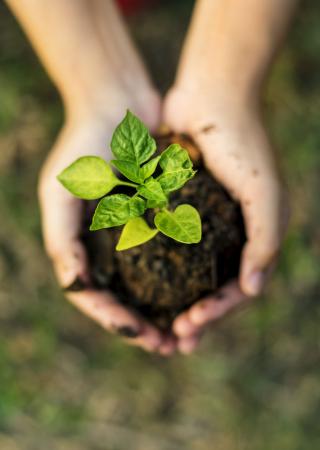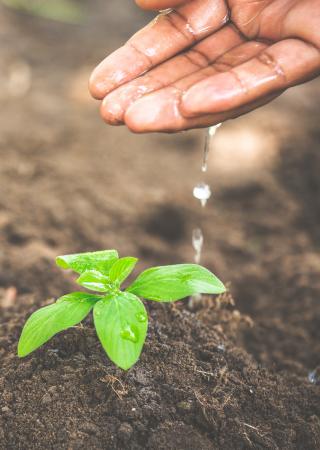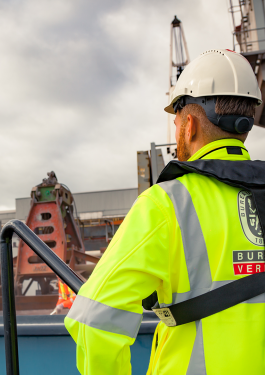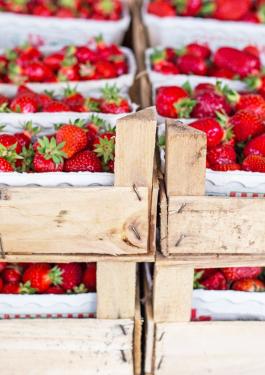Why food production is becoming an important sustainability issue
With a world population that will reach almost 10 billion people by 2050, the question of how to sustainably feed this immense population is becoming increasingly critical. Plant, animal and fish breeders around the world are striving to strike a responsible balance between satisfying growing global demand and protecting the environment.
Regulators and consumers also encourage food producers to strive for more sustainable agricultural practices. For example, the "From Farm to Fork"-Strategy- recently published by the European Commission - a cornerstone of the European Green Deal - focuses particularly on food production.
MEASUREMENT AND MONITORING KEY TO REDUCE GREENHOUSE GAS EMISSIONS
Agriculture is responsible for a significant - and growing - share of global greenhouse gas emissions. Plant production, animal husbandry and aquaculture emit about 10 billion tonnes of greenhouse gases annually - a figure that has almost doubled in the last 50 years. These emissions, mostly in the form of methane and nitrous oxide, come from a variety of sources. Some of the main sources are digestive processes in livestock farming, fertilization, rice cultivation, energy use on the farm and fertilizer production.
As part of the move towards a closed-loop economy model, some food and chemical companies are developing innovative animal feeds to reduce methane emissions from livestock farming. Part of the EU's "From Farm to Fork" strategy stresses the need to facilitate market access for these new feed additives.
Most emission reduction strategies follow the age-old business motto: "If you can't measure, you can't improve". In the context of environmental sustainability, this means measuring and monitoring emissions to set targets and improve performance over time.
THE ROLE OF LAND MANAGEMENT IN COMBATING CLIMATE CHANGE
For this reason, many producers of primary food products seek to demonstrate sustainable practices through certification by organizations such as the „Roundtable on Sustainable Palm Oil (RSPO) and UTZ / Rainforest Alliance (for coffee, cocoa, tea and hazelnuts).
POLLUTION CONTROL AND RESOURCE MANAGEMENT
The agricultural sector is also the largest source of particulate air pollution in much of the industrial world. The ammonia vapours from nitrogen-rich fertilisers, animal waste and the burning of surplus crops combine with other air pollutants - mainly nitrogen oxides and sulphates, which are produced by (conventional) vehicles, power plants and industrial processes. Contact with the resulting toxic aerosols is dangerous to human and animal health. Ammonia from agriculture also acidifies lakes and rivers and, like pesticides, damages aquatic life and ecosystems.
For this reason, both companies and regulatory authorities are striving to reduce the use of harmful fertilisers and pesticides. The aim is to reduce the use and risk of chemical pesticides and the use of more hazardous pesticides by 50% by 2030. Manufacturers who choose to use more environmentally friendly fertilisers and pesticides or switch to organic farming will benefit from the support. Their efforts are also likely to be rewarded by consumers, who are increasingly concerned about the chemical content of the food they consume.
The use of resources is also increasingly on the agenda. Agriculture consumes more water than all other industries combined and is responsible for almost 70% of the world's fresh water abstraction, which is perhaps not surprising given the scale of production. However, to meet the needs of the growing world population, agricultural production will have to double over the next three decades. Sustainable water management will be crucial to ensure food security.
CULTIVATION OF SUSTAINABLE FOOD PRODUCTION WITH A "CIRCULAR" APPROACH
Under the Circular+ Programms,Bureau Veritas offers a comprehensive range of services for this circular approach.
DISCOVER OUR SERVICES IN THE FIELD OF SUSTAINABILITY:
Bureau Veritas offers a wide range of services to help food producers make the transition to a circular, sustainable business model. These include the verification of GHG emissions and the auditing and certification of management systems or training. Bureau Veritas also offers a range of product certification services related to food sustainability.
Learn more about the certification and inspection services of Bureau Veritas:




